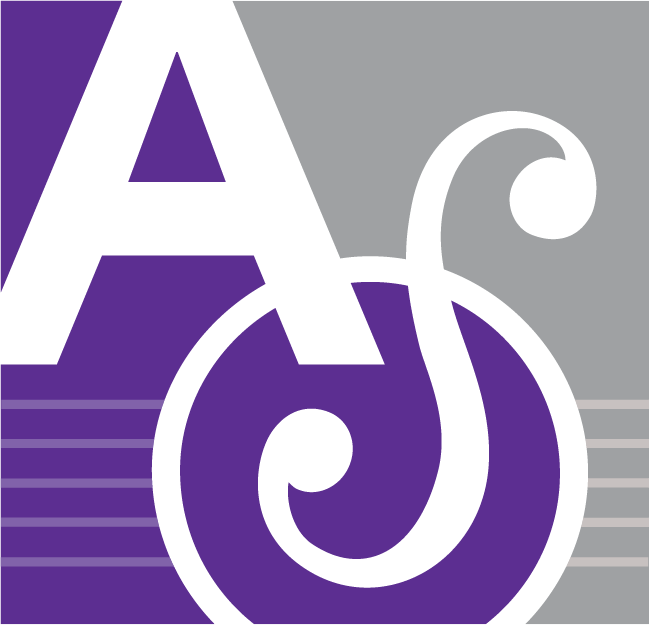ASO Classic Concert “Dreamscapes”
featuring Tim Fain, violin
Saturday, January 27th – 7:30pm
Atwood Concert Hall, ACPA
Your Anchorage Symphony's January 27th concert, Dreamscapes, invites you to close your eyes, open your heart, and let the music carry you to the edge of a dream. Ruth Gipps' Song for Orchestra transports the audience with orchestral hues, painting vivid images with sound. Tim Fain takes listeners on a journey, weaving intricate tales through the tangible and intangible with his violin in his composition, Edge of a Dream. Ralph Vaughan Williams' majestic Symphony No. 2 unfurls like a vast, sonic panorama, closing this surreal, dreamlike evening.
Vanity Fair described violinist and composer Tim Fain as someone who “plays like a virtuoso and thinks like a cinematographer.” The Boston Globe calls him “a charismatic violinist with a matinee idol profile, strong musical instincts, and first-rate chops.” Fain is known for his mesmerizing performances and visionary compositions. His innovative compositions weave cutting-edge technology with a unique, compelling voice for projects in film, television (you can see and hear him on HBO’s Succession), theater, and concert halls. His Grammy-nominated score to The Black Swan and his virtuosic playing plus score arrangements for 12 Years a Slave and Moonlight are artistically stunning.
Born in California, Fain began playing the violin at age seven and performed Beethoven’s virtuosic Spring Sonata for his fifth-grade class when he was only ten. After high school, Fain attended the renowned Curtis Institute for Music in Philadelphia, followed by graduate school at The Juilliard School. His friend and fellow composer Phillip Glass reflected, “He’s a curious mix of a child and a sage. On the one hand, he writes music that has a pounding fury and a sadness. But hanging out with him, he’s intense but also lighthearted.”
The ASO is honored to welcome back this extraordinary performer to the Atwood Concert Hall and is thrilled he will perform his own work. Fain describes his Edge of a Dream for violin and orchestra as about holding on to hope in the face of adversity. He commented, “Sound is my story, and I have much to tell for all who are listening. As a violinist and composer, I strive to make the world a more beautiful place and to give people permission to feel deeply through the music I create. As I was composing this work, qualities of joy and even elation emerged in my writing, which seemed in stark contrast to the ever-present turmoil and uncertainty which I and so many others have experienced during these past couple of years.”
This reflective evening opens with Ruth Gipps’ Song for Orchestra. In this tone poem, one can hear the styles and inspiration of her mentor, Ralph Vaughan Williams, in her use of the oboe and rich pastoral opening. Audiences may not be as familiar with Ruth Gipps as with Vaughan Williams, but she was just as extraordinary. As a young woman, Gipps skillfully studied the oboe and piano and was a known acclaimed soloist. In her early 20s, a shoulder injury forced her to redirect her musical passions, and she started composing and became the youngest British woman to earn a music doctorate at Durham University (Durham, England).
Gipps soon became just as known for her compositions as for her performances, with one of her works performed at the Last Night of the BBC Proms in 1942. A 20th-century trailblazer for women in the arts, Gipps founded the London Repertoire Orchestra and the Chanticleer Orchestra, where young musicians and new works are given opportunities to be heard. She knew firsthand how hard it was to get a new work performed, especially as a woman, and felt it was her duty to be an advocate for those unheard voices.
Vaughan Williams’s atmospheric Symphony No. 2, celebrating the city of London closes the night. This quintessential work reflects the vibrant energy, diversity, and lively neighborhoods of Vaughan Williams' adopted city, including the feeling of emerging from a London fog and Big Ben's chimes. Vaughan Williams's skillful incorporation of English folk melodies results in an evocative and innovative piece that offers an aural journey through the heart of London at the turn of the 20th century.
Completed in 1923 and premiered a year later, the full score for "A London Symphony" was lost during the upheaval of World War I. Vaughan Williams later reconstructed the score from the individual parts. Then, he went on to make three more revisions to the work. He declared the final version (published in 1936) the final one. He wrote, "The London Symphony is past mending, though with all its faults I love it still; indeed, it is my favorite." He then dedicated it to fellow composer and the man who suggested Vaughan Williams write this piece, George Butterworth, who was killed in combat in WWI.
Tickets to Anchorage Symphony’s Dreamscapes are now available at CenterTix.com or by calling 907-263-ARTS (2787). Over the next few weeks, ASO social media channels will have guest artist interviews, pre-concert chats, and more.
Anchorage Symphony’s Dreamscapes, Saturday, January 27, 2024, (7:30pm) in the Atwood Concert Hall, Alaska Center for the Performing Arts. Infrared headphones for the hearing impaired are available concert night from the House Manager on the Orchestra Level. Tickets: Adult, $52-$27; Youth, $24.75-$12.50; Senior, $46.50-$24.50 (prices include all surcharges and fees). Military, student and group discounts available. To purchase tickets, go to www.centertix.com or call 263-ARTS (2787), toll free at 1-877-ARTS- TIX.


